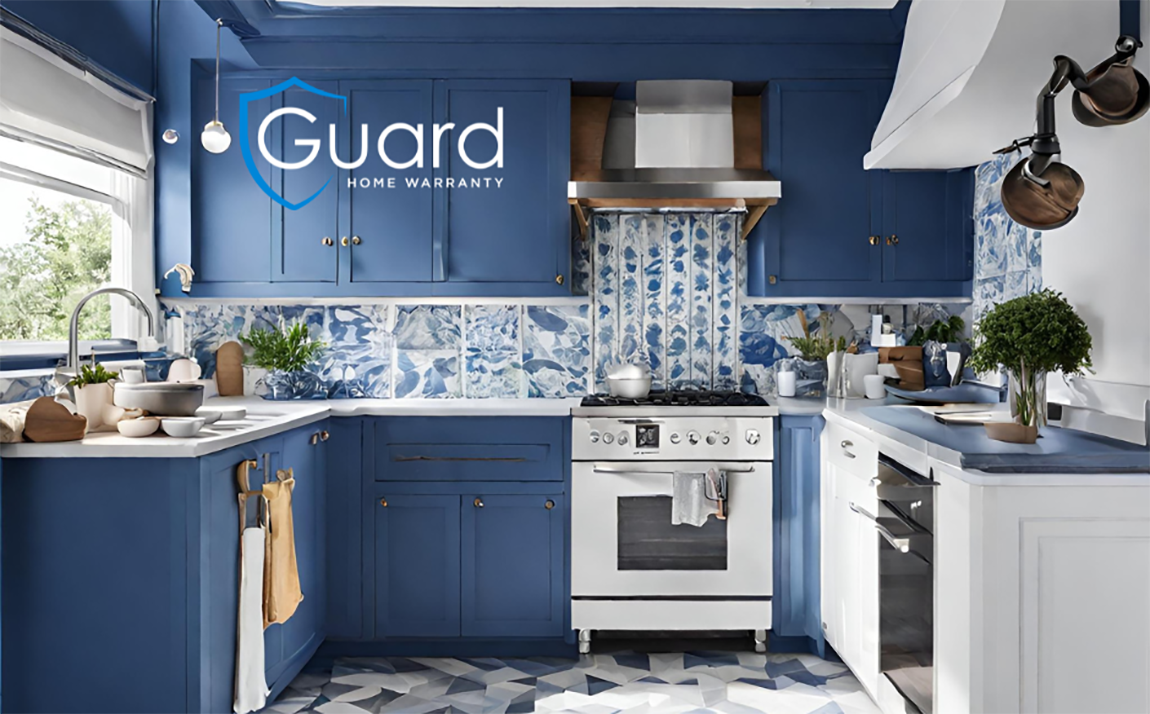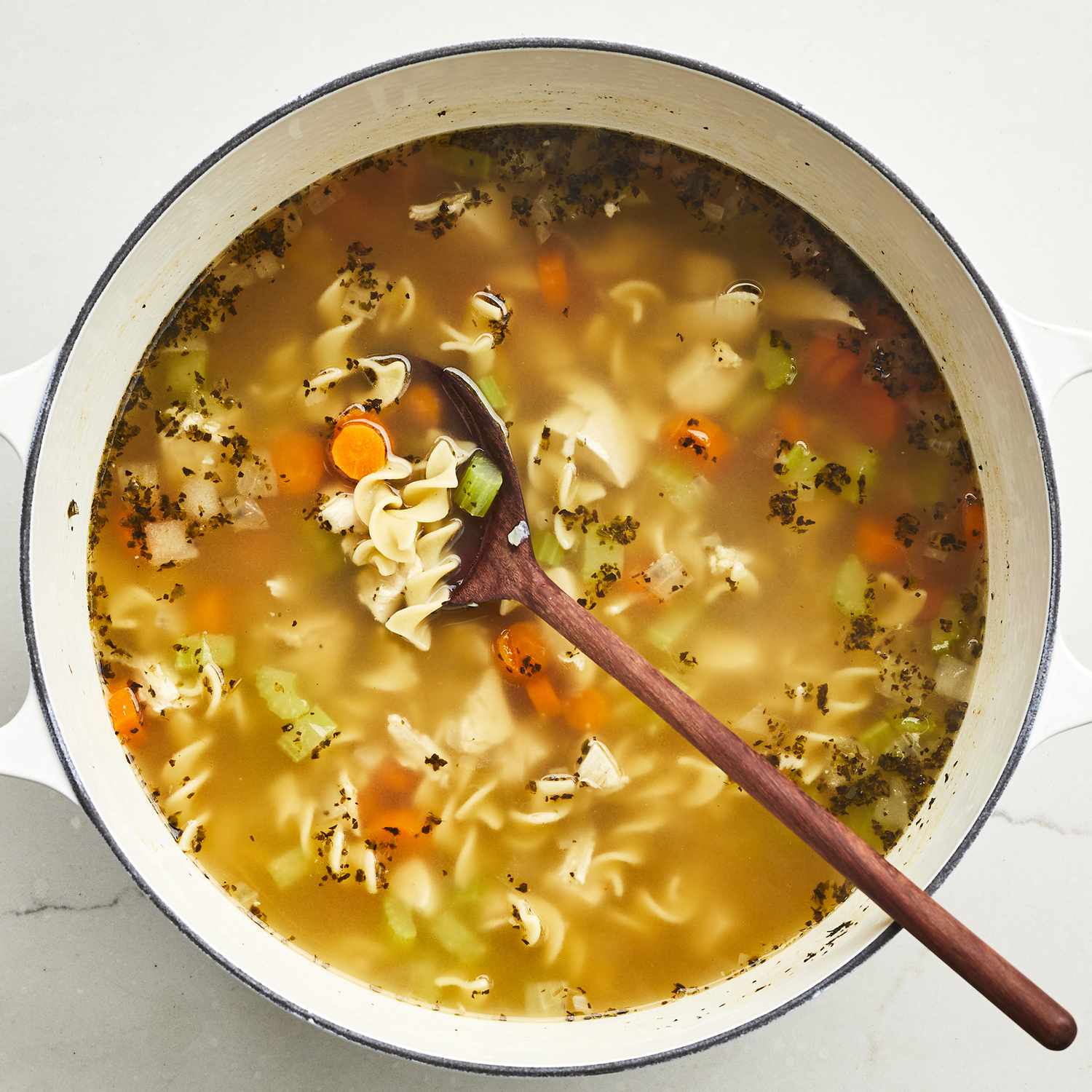As an Amazon Associate, I earn from qualifying purchases
Regular maintenance can significantly extend the lifespan of your kitchen appliances. Simple care routines can save you money and trouble.
Maintaining kitchen appliances doesn’t have to be complicated or time-consuming. By following a few straightforward tips, you can ensure your appliances run efficiently and last longer. Clean appliances regularly to prevent grime buildup, which can affect performance. Check and replace filters and seals to keep your devices running smoothly.
Address minor issues promptly to avoid costly repairs later. Proper care not only extends the life of your appliances but also improves their efficiency, saving you energy and money. Investing a little time in regular maintenance goes a long way in keeping your kitchen running seamlessly.
Maximizing Kitchen Appliance Lifespan
Every kitchen has essential appliances that make daily tasks easier. Keeping these appliances in top shape can save you money and effort. Follow these simple tips to ensure your kitchen tools last longer.
Routine Cleaning Habits
Regular cleaning can prevent grime and dirt buildup. Clean your appliances every week. Use a soft cloth and mild detergent.
Oven: Wipe the interior after each use. Clean racks and trays often.
Refrigerator: Empty and wipe shelves monthly. Clean door seals to ensure a tight seal.
Microwave: Clean the inside with a damp cloth. Remove and wash the turntable regularly.
Immediate Action On Spills And Splatters
Address spills and splatters right away. This prevents stains and damage.
Stovetop: Wipe spills immediately to avoid burnt residue. Use a scraper for stubborn spots.
Dishwasher: Clean food particles after each cycle. Inspect and clean the filter monthly.
Coffee Maker: Rinse the pot and filter basket daily. Run a vinegar cycle monthly to remove buildup.
| Appliance | Cleaning Frequency | Special Tips |
|---|---|---|
| Oven | Weekly | Use a baking soda paste for tough stains. |
| Refrigerator | Monthly | Check and clean the drip pan yearly. |
| Microwave | Weekly | Heat a bowl of water to loosen grime. |
Follow these easy steps to keep your kitchen running smoothly. Your appliances will thank you!
Refrigerator And Freezer Care
Keeping your refrigerator and freezer in top shape is essential. Regular maintenance can extend their lifespan and save energy. Simple steps can make a big difference.
Proper Temperature Settings
Setting the correct temperature is crucial for food safety and energy efficiency. Keep your refrigerator at 37°F (3°C). Set your freezer to 0°F (-18°C).
- Use a thermometer to check the temperature.
- Adjust the settings as needed.
- Avoid placing hot food directly inside.
Coil Maintenance For Efficiency
Dirty coils make your refrigerator work harder, using more energy. Clean the coils every six months to keep it efficient.
- Unplug the refrigerator before cleaning.
- Locate the coils, usually at the back or bottom.
- Use a coil brush or vacuum to remove dust and debris.
Regular coil maintenance reduces energy consumption. This can save you money on your electricity bill.
Dishwasher Durability Tips
Your dishwasher is a valuable kitchen appliance. Proper care can extend its lifespan. Follow these simple maintenance tips to keep it running smoothly.
Filter Cleaning
Clean your dishwasher filter regularly. A dirty filter can block water flow.
- Remove the filter from the bottom of the dishwasher.
- Rinse it under warm water.
- Use a soft brush to remove stuck-on food particles.
- Reinstall the filter properly.
Regular filter cleaning prevents clogging. This helps your dishwasher clean dishes better.
Regular Inspections
Inspect your dishwasher regularly for any issues. Check the door seals for wear and tear.
Look for any leaks or water pooling around the dishwasher. Inspect the spray arms and ensure they rotate freely.
Check the detergent dispenser. Make sure it opens and closes properly.
Regular inspections can catch small problems early. This prevents bigger issues later.
By following these simple tips, you can extend the life of your dishwasher. A well-maintained dishwasher saves you money and keeps your kitchen running smoothly.
Oven And Stove Maintenance
Keeping your oven and stove in top condition helps them last longer. Regular maintenance ensures they work efficiently and safely. Follow these simple tips to extend their lifespan.
Ventilation Check
Proper ventilation is crucial for your oven and stove. Check the vents for blockages. Clean them to ensure good airflow.
- Inspect the exhaust fan regularly.
- Remove grease build-up from the filters.
- Ensure the hood is properly sealed.
A clean vent system prevents overheating. It also reduces the risk of fire.
Burner And Surface Care
Burners and surfaces need regular cleaning. This keeps them looking new and working well.
| Cleaning Task | Frequency |
|---|---|
| Wipe down surfaces | After each use |
| Clean burners | Weekly |
| Inspect for damage | Monthly |
Use a soft cloth and mild detergent for cleaning. Avoid harsh chemicals as they can damage the surface. Ensure burners are completely dry before reassembling. This prevents rust and prolongs their life.
By following these simple tips, your oven and stove will stay in great shape. Regular maintenance can save you money in the long run. Enjoy a cleaner and safer kitchen.
Microwave Preservation
Microwaves are essential in modern kitchens. They save time and simplify cooking. Preserving your microwave ensures it lasts longer. Follow these simple tips to keep your microwave in top shape.
Door Seal Checks
Check the door seal regularly. A good seal keeps the microwave safe. Look for cracks, splits, or wear. Clean the seal with a damp cloth. Dirt can prevent a tight seal. Replace the seal if damaged. A tight seal ensures efficient cooking.
Turntable Function
The turntable is crucial for even cooking. Ensure it spins smoothly. Remove and clean the turntable often. Check the roller ring beneath it. Dirt can block smooth rotation. If the turntable sticks, food may not cook evenly.
| Maintenance Task | Frequency | Importance |
|---|---|---|
| Check Door Seal | Monthly | High |
| Clean Turntable | Weekly | Medium |
| Inspect Roller Ring | Bi-Weekly | Medium |
- Check the door seal for any damage.
- Clean the turntable and roller ring regularly.
- Ensure the turntable spins freely.
- Inspect the door seal monthly.
- Clean the turntable weekly.
- Check the roller ring bi-weekly.
Small Appliance Upkeep
Maintaining your small kitchen appliances can extend their lifespan. Proper care saves you money and keeps your kitchen running smoothly. Let’s dive into some essential tips for keeping your small appliances in top shape.
Blender Blade Sharpness
Blender blades can dull over time. Keeping them sharp ensures smooth blending and reduces motor strain. Here are some simple steps to maintain your blender blades:
- Disassemble the blender and remove the blade assembly.
- Wash the blades in warm, soapy water. Use a brush for thorough cleaning.
- Dry the blades completely to prevent rust.
- Use a sharpening stone to gently sharpen the blade edges.
- Reassemble the blender carefully, ensuring all parts fit correctly.
Regularly checking and sharpening your blender blades can make a big difference. Always handle blades with care to avoid injuries.
Coffee Maker Descaling
Descaling your coffee maker is crucial for maintaining its efficiency. Mineral buildup can affect the taste and performance of your machine. Follow these steps to descale your coffee maker:
- Fill the water reservoir with a mixture of equal parts water and vinegar.
- Run a brew cycle without any coffee grounds.
- Discard the water-vinegar solution and repeat the process with plain water.
- Run several more water-only cycles to remove any vinegar residue.
- Wipe down the exterior and coffee pot with a damp cloth.
Descaling should be done every 1-3 months depending on usage. This simple maintenance step can greatly improve the lifespan and performance of your coffee maker.
Safeguarding Countertop Appliances
Countertop appliances make our kitchen tasks easier. Yet, they need proper care to last long. Here are some tips to safeguard your appliances.
Proper Storage
Proper storage keeps your appliances safe. Store them in a clean, dry place. Use shelves or cabinets to avoid clutter. Ensure cords are wrapped neatly. This prevents damage and wear.
| Appliance | Storage Tips |
|---|---|
| Blender | Keep on a high shelf, wrap cord |
| Toaster | Store in a dust-free cabinet |
| Microwave | Place on a stable, flat surface |
Usage Best Practices
Using appliances correctly increases their lifespan. Always follow the manufacturer’s instructions. Avoid overloading your appliances.
- Blender: Do not blend hot liquids.
- Toaster: Clean crumb tray regularly.
- Microwave: Use microwave-safe containers only.
Regular maintenance is key. Clean your appliances after each use. Check for any signs of wear or damage.
- Unplug appliances before cleaning.
- Use a damp cloth to wipe surfaces.
- Dry completely before storing away.

Credit: www.facebook.com
Yearly Kitchen Appliance Check-up
A yearly kitchen appliance check-up can extend the lifespan of your appliances. Regular maintenance ensures they run efficiently, saving you money on energy bills. This guide covers both professional inspections and self-maintenance tips.
Read More About : Troubleshooting Common Kitchen Appliance Issues: Quick Fixes!
Professional Inspection
Hiring a professional to inspect your appliances can prevent costly repairs. Experts check for hidden issues that you might miss. They ensure that all parts are in working condition. Professionals also clean internal components, improving efficiency.
Here are some benefits of professional inspections:
- Early detection of potential problems
- Thorough cleaning of internal parts
- Expert advice on appliance care
Regular professional inspections help maintain your appliances. It can also extend their lifespan significantly.
Self-maintenance Checklist
In addition to professional check-ups, perform regular self-maintenance. Follow this simple checklist to keep your appliances in top shape:
| Appliance | Maintenance Task | Frequency |
|---|---|---|
| Refrigerator | Clean coils | Every 6 months |
| Oven | Inspect seals | Every 3 months |
| Dishwasher | Clean filter | Every month |
| Microwave | Wipe interior | Weekly |
Additional self-maintenance tips:
- Unplug appliances before cleaning to prevent shocks.
- Use mild cleaners to avoid damaging surfaces.
- Check for signs of wear and replace parts as needed.
Regular self-maintenance keeps your appliances running smoothly. It reduces the risk of sudden breakdowns and extends their lifespan.
Investing In Quality For Longevity
Extending the lifespan of your kitchen appliances begins with investing in quality. High-quality appliances not only perform better but also last longer. This means fewer repairs and replacements over time. By choosing durable brands and analyzing the cost-benefit of your investment, you can ensure your kitchen appliances serve you well for years.
Choosing Durable Brands
When choosing kitchen appliances, always opt for durable brands. Some brands are known for their reliability and longevity. Research and read reviews before making a purchase.
- Look for brands with a reputation for quality.
- Check warranty details and customer reviews.
- Consider the materials used in the appliance.
Durable brands often use high-quality materials. These materials resist wear and tear better. This means your appliances will last longer and perform better.
Cost-benefit Analysis Of Appliance Investment
Investing in quality appliances may seem expensive at first. However, a cost-benefit analysis shows the long-term savings.
| Aspect | Low-Quality Appliance | High-Quality Appliance |
|---|---|---|
| Initial Cost | Low | High |
| Maintenance | Frequent and costly | Infrequent and low |
| Lifespan | Short | Long |
High-quality appliances require less maintenance. They also have a longer lifespan. This reduces the overall cost over time.
Consider the energy efficiency of the appliance. Energy-efficient models save on utility bills. This adds to the long-term savings.
- Compare initial costs and long-term benefits.
- Factor in maintenance and energy savings.
- Choose appliances that offer the best overall value.
Investing in quality appliances is a smart choice. It ensures longevity and saves money in the long run.

Credit: www.restaurantware.com
Energy Efficiency And Appliance Health
Enhancing the energy efficiency of your kitchen appliances is crucial. It not only helps in reducing energy bills but also extends the lifespan of the appliances. Proper maintenance ensures that your appliances work efficiently, saving you money and resources in the long run.
Energy-saving Techniques
Adopting energy-saving techniques can significantly improve the performance of your kitchen appliances. Here are some effective methods:
- Regular Cleaning: Keep your appliances clean to ensure they run smoothly.
- Proper Loading: Avoid overloading your dishwasher and refrigerator.
- Temperature Settings: Set your refrigerator between 37°F and 40°F.
- Unplug Unused Appliances: Disconnect appliances when not in use.
Impact Of Efficiency On Lifespan
Efficient appliances have a longer lifespan. Here’s why:
- Reduced Strain: Efficient appliances experience less wear and tear.
- Lower Repair Costs: They require fewer repairs over time.
- Consistent Performance: They maintain performance levels longer.
| Appliance | Energy-Saving Tip |
|---|---|
| Refrigerator | Clean coils every six months. |
| Dishwasher | Run full loads only. |
| Oven | Use the self-cleaning feature sparingly. |
Implementing these tips can make a big difference. Your appliances will last longer and run more efficiently.
Troubleshooting Common Issues
Extending the lifespan of your kitchen appliances means addressing issues early. This section will help you troubleshoot common problems. You’ll learn how to spot warning signs and decide between DIY fixes and professional help.
Recognizing Early Warning Signs
Identifying issues early can prevent bigger problems. Watch for these warning signs:
- Unusual noises: Clicking, buzzing, or grinding sounds may indicate trouble.
- Overheating: Appliances that feel hot to the touch need checking.
- Leaks: Water or other fluids can mean a seal or hose issue.
- Odors: Strange smells may signal electrical issues or mold.
- Poor performance: If an appliance isn’t working as well, it may need attention.
Diy Fixes Vs. Professional Help
Deciding whether to fix an issue yourself or call a professional can save money and time. Here are some guidelines:
| Issue | DIY Fix | Professional Help |
|---|---|---|
| Clogged filters | Clean or replace the filter | |
| Loose parts | Tighten screws and bolts | |
| Electrical issues | Call a licensed electrician | |
| Refrigerant leaks | Contact a certified technician |
For minor issues like clogged filters or loose parts, a DIY fix often works. For complex problems like electrical issues or refrigerant leaks, always seek professional help. Safety should be your top priority.
Warranty Wisdom
Ensuring your kitchen appliances last longer can save you money. A key part is understanding and using warranties. This section provides warranty wisdom to help you.
Understanding Coverage
Warranties vary between brands and products. Always read the terms carefully. Look for coverage details on parts and labor. Also, note the warranty period.
Some warranties cover only specific issues. Others offer broader protection. It’s important to know what’s included. This helps avoid unexpected costs.
Store your warranty information in a safe place. This includes receipts and registration details. Having easy access helps when needed.
Making Claims Effectively
If an appliance breaks, a quick claim is crucial. Follow these steps to ensure success:
- Check the Warranty: Verify the issue is covered.
- Gather Documents: Collect receipts, registration, and warranty papers.
- Contact the Manufacturer: Use the contact details provided in the warranty.
- Describe the Issue Clearly: Provide detailed information about the problem.
Keep a record of all communications. This includes emails and phone calls. Documenting interactions helps resolve disputes.
| Step | Action |
|---|---|
| 1 | Verify issue coverage |
| 2 | Gather all necessary documents |
| 3 | Contact manufacturer |
| 4 | Provide detailed issue description |
Properly managing warranty claims can extend your appliance’s life. This reduces the need for costly replacements. Stay informed and proactive for the best results.

Credit: www.restaurantware.com
Frequently Asked Questions
How Can I Extend The Life Of My Kitchen Appliances?
Clean regularly, follow user manuals, avoid overloading, use proper settings, and schedule professional maintenance to extend appliance life.
How Do You Maintain Kitchen Appliances?
Clean appliances regularly with mild soap and water. Unplug before cleaning. Check for wear and tear. Follow manufacturer’s instructions. Keep them dry and well-ventilated.
How Can I Extend The Life Of My Refrigerator?
Clean the coils regularly. Keep the door seals tight. Avoid overloading the fridge. Set the right temperature. Ensure proper ventilation.
What Is The Lifespan Of Kitchen Appliances?
Kitchen appliances typically last 10 to 15 years. Refrigerators and ovens often last up to 15 years. Dishwashers and microwaves usually last around 10 years. Regular maintenance can extend their lifespan.
Conclusion
Regular maintenance can significantly extend the lifespan of your kitchen appliances. Follow these tips to save money and avoid frequent repairs. Clean regularly, inspect parts, and address small issues promptly. Your appliances will run efficiently for years, providing you with reliable performance and peace of mind.
Keep your kitchen running smoothly with minimal effort.
Read more Best No 1 Wireless Meat Thermometer for Smoker With App
Read more Emerging Technologies in Kitchen Appliances: Smart & Sleek!
As an Amazon Associate, I earn from qualifying purchases








Leave a Reply